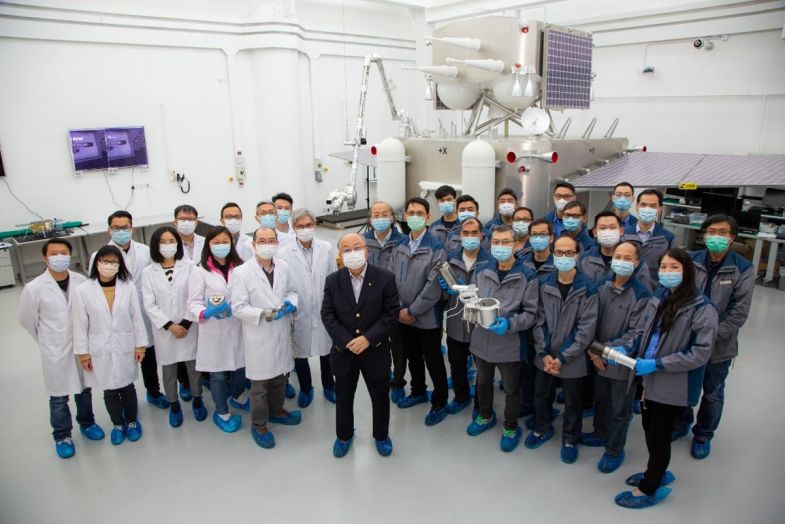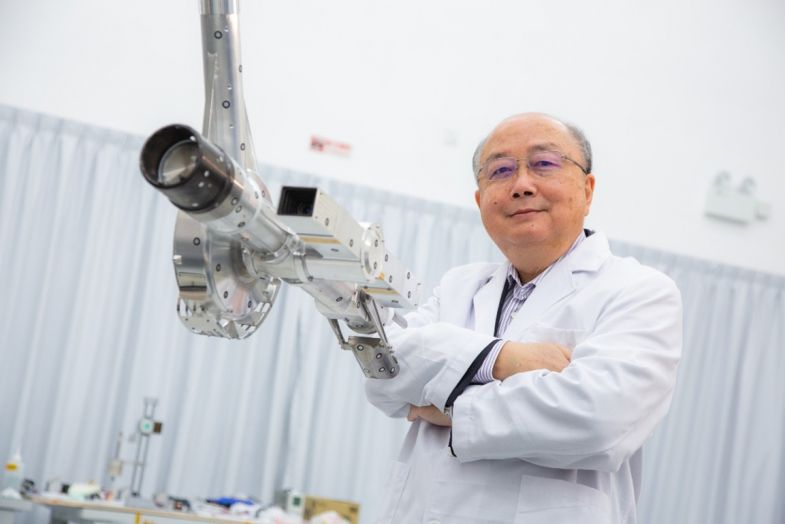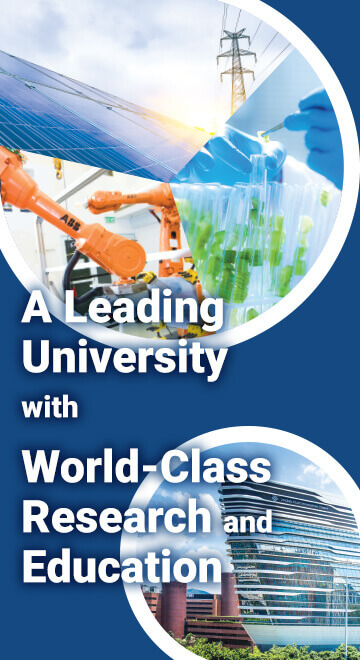PolyU’s space instruments contribute to China’s first lunar sample return mission
The Hong Kong Polytechnic University’s (PolyU) research excellence contributed to China’s Chang’e 5 mission, which successfully collected lunar samples from the Moon and brought them back to Earth for the first time in the Nation’s history.
Chang’e 5 was not only China’s first undertaking to acquire rocks and soil from the Moon’s surface, but it was also the world's first attempt to do so for more than 40 years since the last lunar mission occurred in 1976.
The “Surface Sampling and Packing System” developed by PolyU’s research team in collaboration with the China Academy of Space Technology (CAST) was responsible for collecting the surface samples. It was developed by a research team led by Professor Yung Kai-leung, Associate Head of the Department of Industrial and Systems Engineering, and Sir Sze-yuen Chung Professor in Precision Engineering. The team comprised more than 20 members, with Dr Robert Tam, Associate Director of PolyU’s Industrial Centre, as a key member.
An unprecedented mission accomplished
While the regolith collection from the surface of the Moon took just 20 hours to accomplish, the lunar exploration project required many years of research and preparation work. The CAST commissioned PolyU to develop the sample collection and packaging device back in 2011.
“The challenge was that we were preparing for the unknown. We had no definite idea of what to do and what to design because there was no reference available. Collecting a large quantity of lunar samples through robotic means was unprecedented,” Professor Yung explained. It was not until 2017 that his team finally solved all the technical problems to deliver the project.
Every component of the System was precisely designed for the mission. “The manufacturing of the System parts is technically complex and requires a very high level of precision, accuracy and reliability,” Dr Tam said. PolyU’s pioneering Industrial Centre played a pivotal part in the manufacturing, assembling, testing and quality control of the space instruments.
20 years of experience in space exploration
Being the only tertiary institution in Hong Kong that possesses international deep space qualification experience, PolyU has been contributing to the Nation’s space projects since 2010. The University collaborated with the CAST to develop a “Camera Pointing System” for Chang’e 3 in 2013 and for Chang’e 4’s historic landing on the far side of the Moon in 2019, as well as creating a Mars Camera for Tianwen 1 in 2020. The “Surface Sampling and Packing System” will also be used for the Chang’e 6 mission.

Professor Yung kai-leung (centre) and his research team.

The “Surface Sampling and Packing System” is a comprehensive system for lunar sample acquisition.












